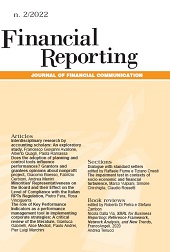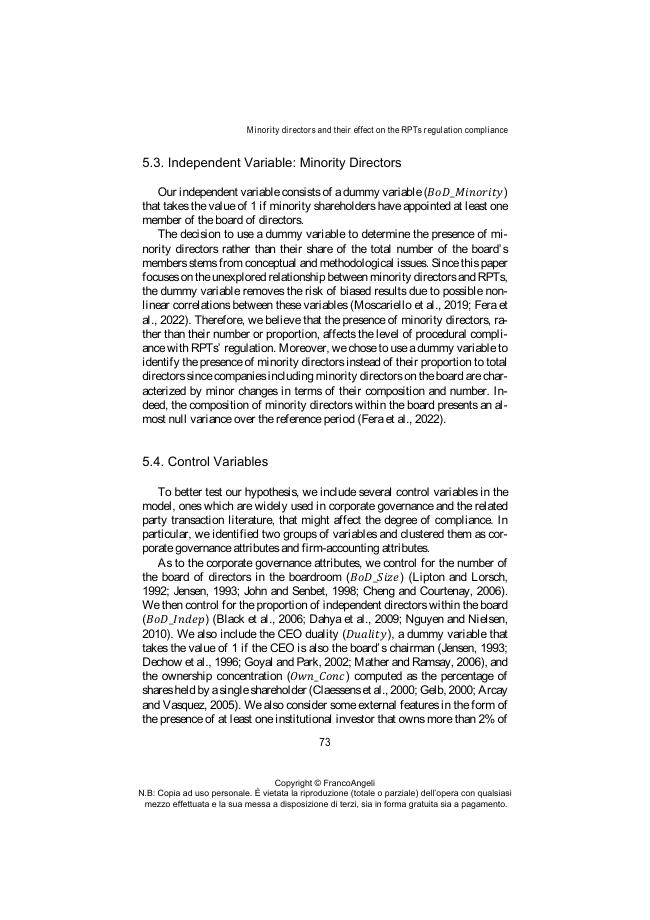Minorities' representativeness on the board and their effect on the level of compliance with the italian RPTs regulation
P. 57-88
The definition and regulation of related-party transactions (RPTs) depend mainly on the conceptual framework underlying the interpretation of such a phenomenon. While the conflict of interests hypothesis focuses on opportunistic behaviours, the efficient transaction hypothesis suggests that RPTs lead to more efficient. In such a scenario, instead of providing opposite interpretations, the contingency hypothesis considers the potential risks and benefits associated with specific RPTs, i.e. other contextual factors and corporate governance mechanisms. Among the latter, independent directors, empowered by the majority of national legislations worldwide, should play a crucial role in spotlighting opportunistic behaviours to the detriment of minorities.
However, in light of the many corporate scandals that have stressed the RPTs' issues, practitioners and academics have questioned their effectiveness, especially in contexts characterized by high ownership concentration, while leaving room for the so-called minority directors, i.e. independent directors appointed by minority shareholders. On this matter, aiming to analyse the potential impact of minority directors on the level of procedural compliance for the RPTs' implementation, this empirical study, based on a data set, shows that they represent a more effective tool for the full and strict adoption of the current RPTs regulation, while independent directors fail in their monitoring role and are ineffective in bolstering corporate transparency with regard to RPTs. [Publisher's text]
-
Articles du même numéro (disponibles individuellement)
-
Informations
Code DOI : 10.3280/FR2022-002003
ISSN: 2036-6779
KEYWORDS
- Related Party Transactions (RPTs), minority directors, independent directors, corporate governance



